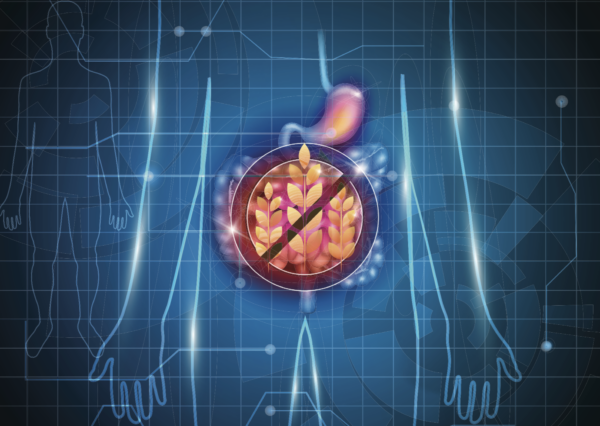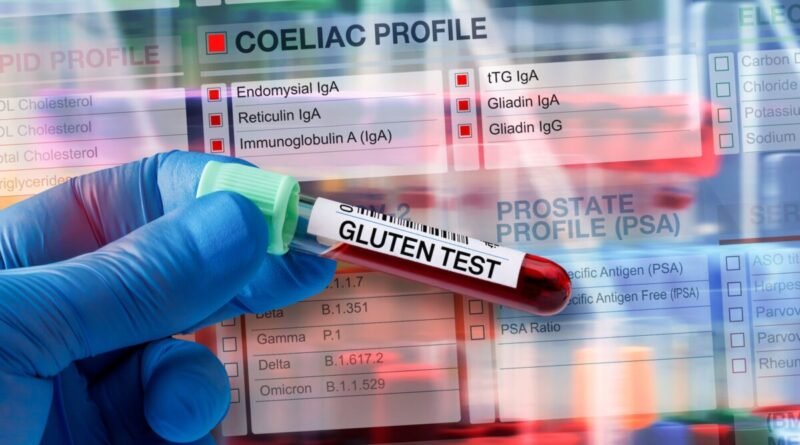Medical Warning: Gluten Allergies Affect Everyone
Fatigue and depression are at epidemic levels in modern society. Today, I ask you, could gluten allergies (toxicity) be causing so many of today’s health problems?
While I make great efforts to keep up on the current medical literature, my efforts consistently fall short of the mark. It seems that every few months I make my own personal “discovery” of significant medical information that has escaped me while having long been familiar to many of my fellow docs.
In particular, I would like to inform all health-seekers about two very important books. And while they certainly do not need my endorsement (both New York Times bestsellers), I must give my highest of recommendations to “Wheat Belly” by William Davis, M.D.and “Grain Brain” by David Perlmutter, M.D.
“Wheat Belly“ is an especially informative, entertaining, and easy read. Both are excellent, and both are soundly based on the medical literature.
The food you eat is making you sick and the agencies that are providing you with guidelines on what to eat are giving dangerous advice with devastating health consequences. You can change that today.
Repeatedly, it seems that so much information is literally buried in the medical literature, and it takes docs like Davis and Perlmutter to wade through it all and show the world what was hiding in plain sight all the while.
Brain disease starts with your daily bread.
Toxic Food Masquerading as ‘Nutrition’
I learned about gluten 40 years ago in medical school. Or, so I thought. What I had actually learned was that gluten is the prominent protein component of wheat, and that it was responsible for a debilitating disease known as celiac disease in a very limited number of susceptible individuals.
What I did not learn was how toxic gluten is for everyone, even though it is vastly more toxic for celiac patients.
In a nutshell, celiac disease is an autoimmune disease that results from inflammation initiated by gluten and similar wheat-derived proteins in the small intestine. The chronic inflammation, while causing discomfort and a broad spectrum of digestive symptoms, also results in severe malabsorption syndromes in many such patients, along with the facilitated uptake of gluten-derived substances into the bloodstream that can then be distributed throughout the body.

What Most People Never Hear About Gluten Allergies
The rest of the story is that there are very few individuals who are completely free of the negative reactions resulting from the continual ingestion of gluten and its related proteins. Rather, most people just accept their heartburn, diarrhea, constipation, abdominal discomfort, or even their lactose intolerance as their lot in life.
When so many people are in the same boat, most individuals simply believe that whatever problems they are having are simply part of the human experience. In fact, there are no negative symptoms that are ever “natural.” You may never find out why you are suffering from something, but that certainly does not mean there is not a reason.
Like so many chronic diseases, the many problems resulting from chronic gluten ingestion never get diagnosed because there is never a complete cessation of the exposure to gluten. While a gluten-free diet is not that difficult to follow, it will consistently be ingested on a daily basis, usually in relatively large amounts, if a disciplined attempt is not made to avoid it.
Many people who claim to feel so much better after engaging in various fasts or severely restricted diets are often benefiting from the relief they finally feel when their gastrointestinal tract is no longer being bombarded with the toxicity of gluten.
What Does Gluten Sensitivity Look Like on a Physiological Level?
Gluten and its related proteins, the antibodies generated to these substances, and some of the breakdown products of gluten can all result in an incredibly wide spectrum of negative and toxic side effects in the body.
The laundry list of such effects includes, but is certainly not limited to, headache, arthritis, a wide variety of digestive issues, back pain, worsened osteoporosis, mouth ulcers, depression and irritability, diabetes or hypoglycemia, fatigue, weight gain, peripheral neuropathy, vitamin and mineral deficiencies, inability to concentrate well or to think clearly, and impaired memory.
Ultimately, gluten is likely a significant factor in the development of cancer for some individuals.
The extent of this list should come as no surprise when it is realized that gluten toxicity results in an autoimmune disease. Examine the list of signs and symptoms that occur with any autoimmune disease and you will see that chronic gluten ingestion and intolerance are completely in keeping with the broad-based nature of such afflictions.
Wheat Represents the ‘King’ of Genetically Altered Foods
Very many people today, with good justification, are very upset over the extensive genetic manipulation of our food supply. Nothing has been genetically altered more than wheat.
Furthermore, in contrast with most other foods genetically altered, wheat that has not been extensively manipulated is simply no longer available. This, of course, just makes a bad situation worse.
Wheat, from any source or anything derived from it, will expose you to gluten. And the toxicity inherent in any genetically-altered food is now always present with wheat ingestion as well. This includes nearly all breads, pastas, cereals, many beverages, and a wide variety of snacks and desserts, like granola bars and cookies.
Eating any of these products because they are “organic” does not mean the is an absence of gluten and its derivative substances. Organic only means you are not ingesting the additional toxins associated with foods that are not raised organically.
Ingesting wheat-based products also “yoyos” the blood sugar throughout the day, feeding the cravings that are characteristic of a largely carbohydrate-based diet. As such, and the reason for the name of Davis’ book “Wheat Belly,” many people undergo striking, profound, and permanent weight loss when eliminating gluten from their diet, while actually losing their cravings to snack.
What Can a Gluten-Free Diet Do for Me? (I’m Glad You Asked)
While I don’t like to convince anyone of anything just because it happened to me, I would be remiss if I did not at least mention my own experience with a gluten-free diet.
After reading “Wheat Belly,” I eagerly jumped on the gluten-free bandwagon. I was not disappointed.
My energy skyrocketed, my thinking was decidedly clearer, and my memory seemed to resume its competence of about 20 years earlier.
Physically, an arthritic left thumb that had been a source of pain and frustration for over two years simply resolved within the first week of the diet. That stunned me, to say the least. Mainstream, alternative, integrative medicine—I had tried it all—had absolute ZERO effect on improving the health of my thumb, prior to starting the diet.
My increasingly frequent headaches disappeared as well. My blood test changes were equally dramatic, as my CRP (C-reactive protein, index of inflammation) dropped substantially, and my fasting blood glucose dropped into the low 90s for the first time in years.
Just as remarkably, at least to me, I no longer had snack cravings all day long as I had all my life.
And even though I could still enjoy some wheat toast with my eggs, the positive response that I have had to eliminating gluten from my diet has really eliminated that desire, or craving, completely. When you are convinced a certain food has been making you feel bad while eroding away your good health, it’s really not so hard to avoid it.
A Final Word of Advice to the Younger Generation
This is a very short treatment of an important subject that deserves closer examination by all health-conscious readers. I would encourage everyone to read up on the subject and to strongly consider eliminating gluten from their diets.
This includes younger individuals who don’t feel they yet have any significant health problems. Certainly, do not feel for a moment you have come close to “doing everything” to eliminate your unique array of symptoms until you have given yourself at least a two-week trial of a gluten-free diet.
Most common symptoms should show improvement in just a few days. Stick with it for a few months, and you may well be amazed at the new you. You might also have to buy a new, smaller wardrobe, an expenditure most individuals would welcome.
Republished from NaturalHealth365
Views expressed in this article are the opinions of the author and do not necessarily reflect the views of The Epoch Times. Epoch Health welcomes professional discussion and friendly debate. To submit an opinion piece, please follow these guidelines and submit through our form here.




